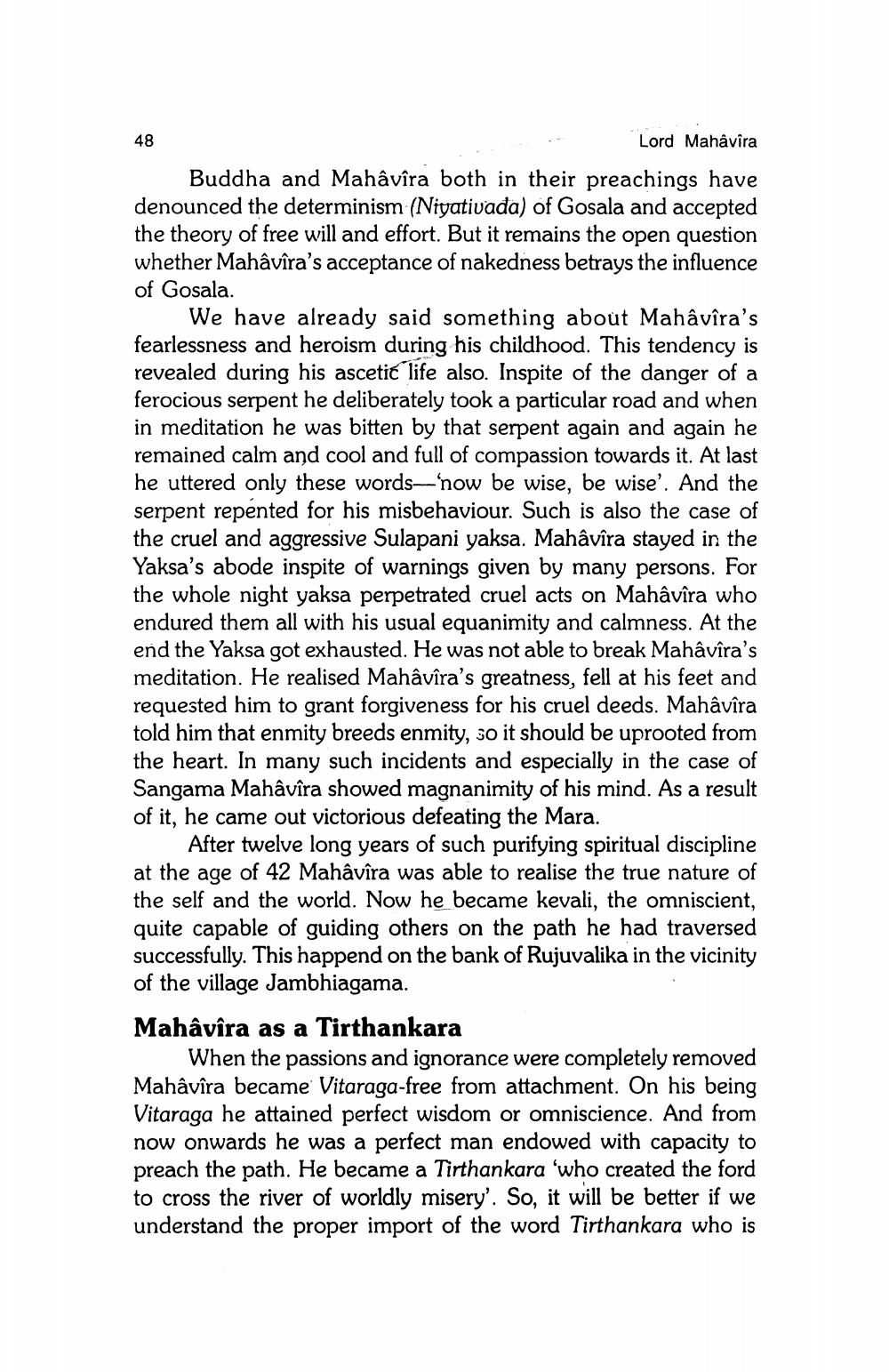________________
48
Lord Mahavira Buddha and Mahâvîra both in their preachings have denounced the determinism (Niyativađa) of Gosala and accepted the theory of free will and effort. But it remains the open question whether Mahâvîra's acceptance of nakedness betrays the influence of Gosala.
We have already said something about Mahâvîra's fearlessness and heroism during his childhood. This tendency is revealed during his ascetic life also. Inspite of the danger of a ferocious serpent he deliberately took a particular road and when in meditation he was bitten by that serpent again and again he remained calm and cool and full of compassion towards it. At last he uttered only these words—now be wise, be wise'. And the serpent repented for his misbehaviour. Such is also the case of the cruel and aggressive Sulapani yaksa. Mahâvîra stayed in the Yaksa's abode inspite of warnings given by many persons. For the whole night yaksa perpetrated cruel acts on Mahâvîra who endured them all with his usual equanimity and calmness. At the end the Yaksa got exhausted. He was not able to break Mahâvîra's meditation. He realised Mahâvîra's greatness, fell at his feet and requested him to grant forgiveness for his cruel deeds. Mahâvîra told him that enmity breeds enmity, so it should be uprooted from the heart. In many such incidents and especially in the case of Sangama Mahâvîra showed magnanimity of his mind. As a result of it, he came out victorious defeating the Mara.
After twelve long years of such purifying spiritual discipline at the age of 42 Mahâvîra was able to realise the true nature of the self and the world. Now he became kevali, the omniscient, quite capable of guiding others on the path he had traversed successfully. This happend on the bank of Rujuvalika in the vicinity of the village Jambhiagama. Mahâvîra as a Tirthankara
When the passions and ignorance were completely removed Mahâvîra became Vitaraga-free from attachment. On his being Vitaraga he attained perfect wisdom or omniscience. And from now onwards he was a perfect man endowed with capacity to preach the path. He became a Tirthankara 'who created the ford to cross the river of worldly misery'. So, it will be better if we understand the proper import of the word Tirthankara who is




